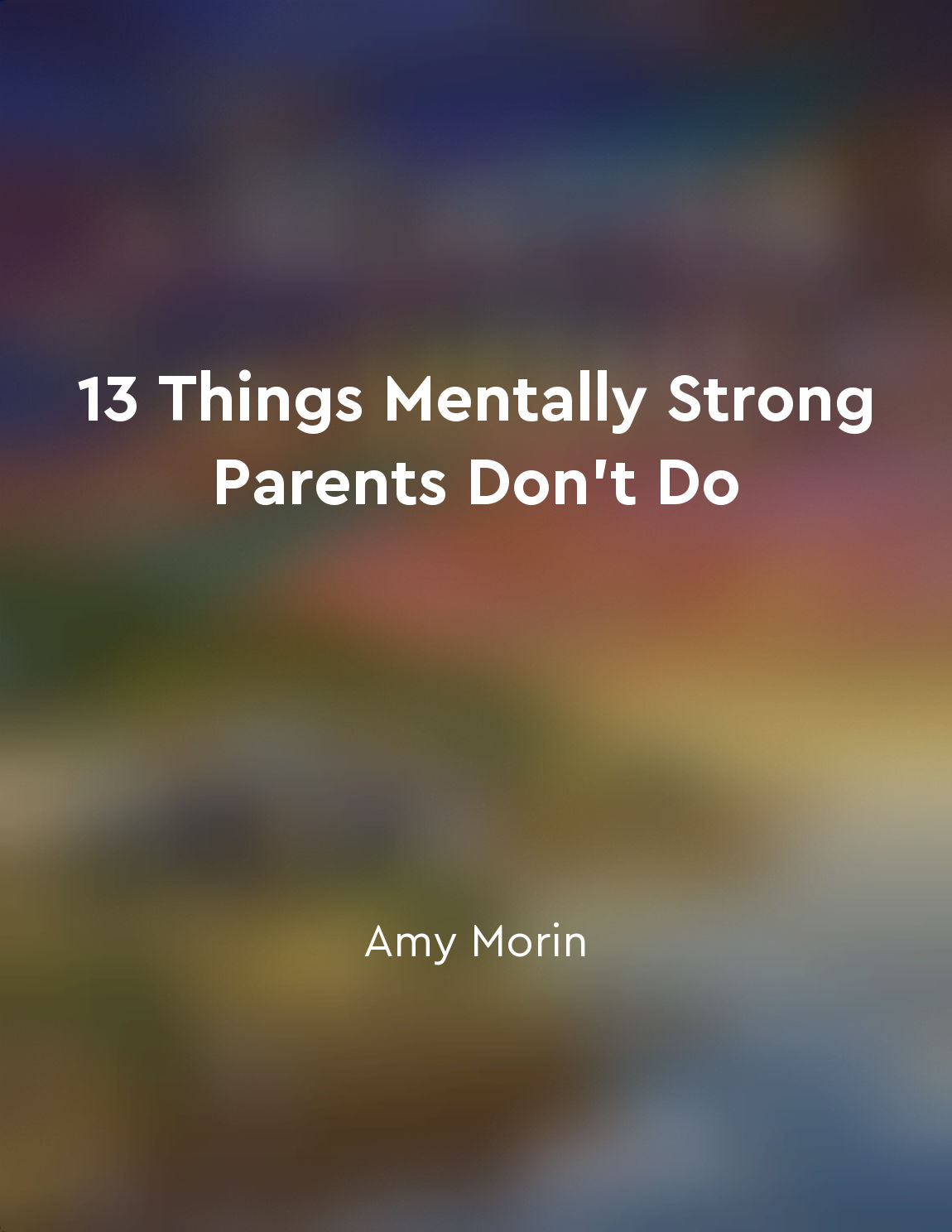Discipline should be about teaching, not punishing from "summary" of The Gentle Parent by L. R. Knost
Discipline is often mistakenly viewed as a system of rules to be enforced through punishment, but in reality, it should be approached from a perspective of teaching. When we shift our focus from punishment to education, we can begin to see discipline as an opportunity for growth and learning rather than a means of control. By viewing discipline in this way, we can create a more positive and nurturing environment for both parents and children. When we approach discipline as an opportunity for teaching, we can help children understand the reasons behind certain rules and expectations. This allows them to develop a deeper understanding of right and wrong, rather than simply following orders out of fear of punishment. By taking the time to explain the reasons behind our actions and decisions, we can help children develop critical thinking skills and a sense of personal responsibility. Teaching through discipline also allows for more open and honest communication between parents and children. When we focus on educating rather than punishing, we create a safe space for children to express their thoughts and feelings without fear of retribution. This open dialogue fosters trust and mutual respect, strengthening the bond between parents and children. Additionally, teaching through discipline helps children develop important life skills such as problem-solving, conflict resolution, and self-regulation. By guiding children through the process of understanding their actions and making amends when necessary, we empower them to become responsible and empathetic individuals. This approach builds resilience and emotional intelligence, preparing children to face life's challenges with confidence and grace.- Viewing discipline as a form of teaching rather than punishment can transform the parent-child relationship and foster a positive and nurturing environment for growth and learning. By focusing on education and communication, we can help children develop important life skills and a strong sense of personal responsibility. Ultimately, teaching through discipline empowers children to become compassionate, resilient, and self-aware individuals who are capable of navigating the complexities of the world with grace and integrity.
Similar Posts
Understanding boys' natural energy levels can help in parenting them
Boys are naturally energetic beings - full of zest and vitality. This inherent energy is a crucial aspect of their being, shapi...
Use empathy to connect with your child
To connect with your child, empathy is the key. It is crucial to put yourself in your child's shoes and understand their perspe...

Avoid Being Inconsistent with Your Parenting
Consistency is key when it comes to parenting. Children thrive on routines and knowing what to expect. When parents are inconsi...
Encourage children to take responsibility for their actions
When children take responsibility for their actions, they learn important life skills that will serve them well in the future. ...
Use positive reinforcement to encourage good behavior
Positive reinforcement is a powerful tool that parents and teachers can use to encourage good behavior in children. It involves...
Discipline should focus on problemsolving and learning
When it comes to discipline, it's important to shift our focus from simply doling out punishments to actually addressing the un...


